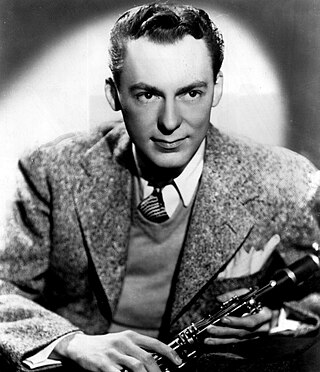
Woodrow Charles Herman was an American jazz clarinetist, saxophonist, singer, and big band leader. Leading groups called "The Herd", Herman came to prominence in the late 1930s and was active until his death in 1987. His bands often played music that was cutting edge and experimental; their recordings received numerous Grammy nominations.
The Weavers were an American folk music quartet based in the Greenwich Village area of New York City originally consisting of Lee Hays, Pete Seeger, Ronnie Gilbert, and Fred Hellerman. Founded in 1948, the group sang traditional folk songs from around the world, as well as blues, gospel music, children's songs, labor songs, and American ballads. The group sold millions of records at the height of their popularity, including the first folk song to reach No. 1 on popular music charts, their recording of Lead Belly's "Goodnight, Irene." Despite their popularity, the Weavers were blacklisted during much of the 1950s.
Gordon Hill Jenkins was an American arranger, composer, and pianist who was influential in popular music in the 1940s and 1950s. Jenkins worked with The Andrews Sisters, Johnny Cash, The Weavers, Frank Sinatra, Louis Armstrong, Judy Garland, Nat King Cole, Billie Holiday, Harry Nilsson, Peggy Lee and Ella Fitzgerald.
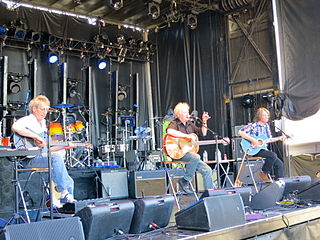
The Strawbs are an English rock band founded in 1964 as the Strawberry Hill Boys. The band started out as a bluegrass group, but eventually moved on to other styles such as folk rock and progressive rock.

"Goodnight, Irene" or "Irene, Goodnight," is a 20th-century American folk standard, written in 3
4 time, first recorded by American blues musician Huddie 'Lead Belly' Ledbetter in 1933. A version recorded by the Weavers was a #1 hit in 1950.

Ruth Alice "Ronnie" Gilbert, was an American folk singer, songwriter, actress and political activist. She was one of the original members of the music quartet the Weavers, as a contralto with Pete Seeger, Lee Hays, and Fred Hellerman.

Ballad of Easy Rider is the eighth album by the American rock band the Byrds and was released in November 1969 on Columbia Records. The album was named after the song "Ballad of Easy Rider", which had been written by the Byrds' guitarist and singer, Roger McGuinn, as the theme song for the 1969 film, Easy Rider. The title was also chosen in an attempt to capitalize on the commercial success of the film, although the majority of the music on the album had no connection with it. Nonetheless, the association with Easy Rider heightened the Byrds' public profile and resulted in Ballad of Easy Rider becoming the band's highest charting album for two years in the U.S.
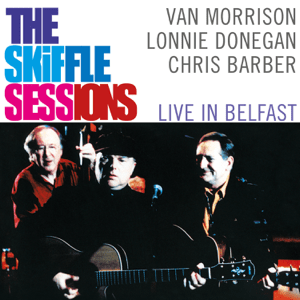
The Skiffle Sessions – Live in Belfast is a live album by Northern Irish singer-songwriter Van Morrison, with Lonnie Donegan and Chris Barber, released in 2000. Lonnie Donegan had played with the Chris Barber jazz band when he had his first hit with "Rock Island Line"/"John Henry" in 1955. He had been a childhood influence on Van Morrison, who had performed in his own skiffle band with schoolmates when he was twelve years old in Belfast, Northern Ireland. This was Donegan's second album in twenty years, reviving his career until his death in 2002.
Lee Elhardt Hays was an American folk singer and songwriter, best known for singing bass with the Weavers. Throughout his life, he was concerned with overcoming racism, inequality, and violence in society. He wrote or cowrote "Wasn't That a Time?", "If I Had a Hammer", and "Kisses Sweeter than Wine", which became Weavers' staples. He also familiarized audiences with songs of the 1930s labor movement, such as "We Shall Not Be Moved".
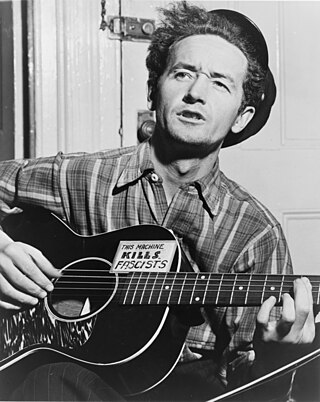
The American folk music revival began during the 1940s and peaked in popularity in the mid-1960s. Its roots went earlier, and performers like Josh White, Burl Ives, Woody Guthrie, Lead Belly, Big Bill Broonzy, Richard Dyer-Bennet, Oscar Brand, Jean Ritchie, John Jacob Niles, Susan Reed, Paul Robeson, Bessie Smith, Ma Rainey and Cisco Houston had enjoyed a limited general popularity in the 1930s and 1940s. The revival brought forward styles of American folk music that had in earlier times contributed to the development of country and western, blues, jazz, and rock and roll music.
Fred Hellerman was an American folk singer, guitarist, producer, and songwriter. Hellerman was an original member of the seminal American folk group The Weavers, together with Pete Seeger, Lee Hays, and Ronnie Gilbert. He produced the record album Alice's Restaurant (1967) for Arlo Guthrie, played accompaniment guitar on scores of folk albums, and wrote a number of folk and protest songs.

Ballad for Americans and Other American Ballads is an album by American folk singer Odetta. It was released in 1960.

The Best of the Vanguard Years is a compilation album by American folk singer Odetta, originally released in 1999.
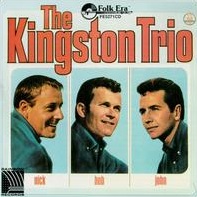
The Kingston Trio (Nick Bob John) (more commonly known as Nick Bob John) is an album by the American folk music group the Kingston Trio, released in 1964 (see 1964 in music). Nick Bob John failed to reach the Top 40, peaking at number 53 on the Billboard Pop Albums chart.

The Decca Years is a compilation of The Kingston Trio's four albums recorded for the Decca Records label. Folk Era had previously reissued The Kingston Trio , Stay Awhile and Children of the Morning, each including tracks from Somethin' Else as bonus tracks. They are presented here in the same song order as the reissues.

Live at Royal Albert Hall is a live album by the American rock band the Byrds, released in 2008 on Sundazed Records. The album consists of recordings from the band's appearance at the Royal Albert Hall in London, England on May 13, 1971. Although the tapes had been in lead guitarist Roger McGuinn's possession since the concert took place, the album represents the first official release of all tracks. In addition to the regular CD release, Live at Royal Albert Hall 1971 was also released as a double album vinyl LP.

A Carnegie Hall Christmas Concert is an 89-minute television film starring the opera singers Kathleen Battle and Frederica von Stade, the jazz trumpeter Wynton Marsalis, the Wynton Marsalis Septet, the American Boychoir, the Christmas Concert Chorus, the Orchestra of St. Luke's and the pianist and conductor André Previn. It first aired as part of PBS's Great Performances series in 1991, and was subsequently released on VHS, Laserdisc, DVD and CD. It was jointly produced by CAMI Video, Sony, PBS and WNET.

Mulennium is a live album by American southern rock band Gov't Mule. It includes all three sets from the band's December 31, 1999/January 1, 2000 New Year's Eve show at the Roxy Theatre in Atlanta, Georgia. The band had headlined the same venue exactly one year before, which resulted in their second live album Live... With a Little Help from Our Friends. Unlike that release, which came out within a year of the actual concert, Mulennium was not released until 2010.

We Shall Overcome is a 1963 album by Pete Seeger. It was recorded live at his concert at Carnegie Hall, New York City, on June 8, 1963, and was released by Columbia Records.
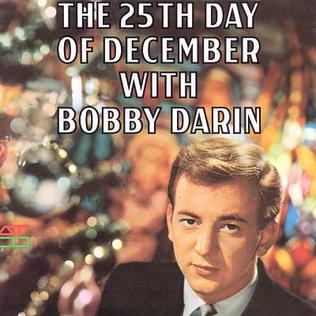
The 25th Day of December is a Christmas album by American singer Bobby Darin, released in 1960.















